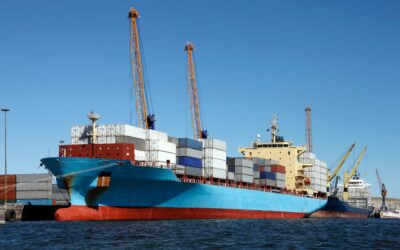German Supply Chain Law
The increasing demand for goods and services has an impact on the global supply chain processes. More and more ethical dilemmas and conflicts with human rights arise in connection with the increasing demand for goods and the role of the supply chain to attend the increased demand and consumption.
In order to prevent human rights violation and environmental exploration, it is crucial that companies within the supply chain are given more responsibility to address environmental and human rights dilemmas arising out of the increased consumption and demand for goods and services. Organization shall be socially responsible for what they are producing and bringing to the consumer market. In particular, the social dilemma arises in emerging markets, where human rights are frequently violated with child labor, discrimination, and inadequate labor law protection.
Due to German companies heavy involvement in global sales and procurement markets, they are particularly confronted with human rights challenges in their supply chains.
On 11 June 2021 the German Bundestag passed the new supply chain law (“Supply Chain Law” or “Law”). The Supply Chain Law brings into effect the UN Guiding Principles on Business and Human Rights.
The new law aims to improve the international human rights situation by giving German companies the responsibility to conduct due diligence and risk management in connection with their suppliers and products.
The Supply Chain Law also covers environmental protection, where environmental risks can lead to human rights violations. Environment-related obligations are established, based on two international conventions to prevent health and environmental hazards: the Minimata Convention on Mercury and the Stockholm Convention on Persistent Organic Pollutants.
The Law will take effect in 2023. In the first phase the Supply Chain Law will apply to about 600 companies with 3.000 or more employees. In the second phase, starting 2024 it shall then apply to 3.000 companies with 1,000 or more employees.
It is worth to note that the Law does not only apply to “German” companies, but also to foreign companies having a subsidiary or branch office in Germany hence having a broad legislative reach.
In line with § 4 of the Supply Chain Law, companies must establish an appropriate and effective risk management system. Risk management must be anchored in all relevant business processes through appropriate measures. Effective measures are those that make it possible to identify human rights and environmental risks and to prevent, end or minimize violations of protected legal positions or environmental obligations if the enterprise has caused or contributed to these risks or violations within the supply chain.
The Supply Chain Law however does not make it mandatory to also conduct an effective due diligence on indirect suppliers. It requires companies to merely ascertain risks on ad hoc basis, means in case a company has substantiated knowledge of a potential human right violation.
The Law contains penalty provisions. In the event companies violate their due diligence obligation, they can be fined by the Federal Office for Economic Affairs and Export control (“BAFA”). Depending on how severe the violation is, fines can be a monetary fine of at least 175,000 Euros or exclusion from public procurement contracts.
Beside France, Germany is the second European country implementing the Supply Chain Law.
Our team of international legal and risk advisors specialized in risk management and regulatory compliance are well placed to help clients to questions or concerns related to the new Supply Chain Law and its requirement. Please get in contact with us.




